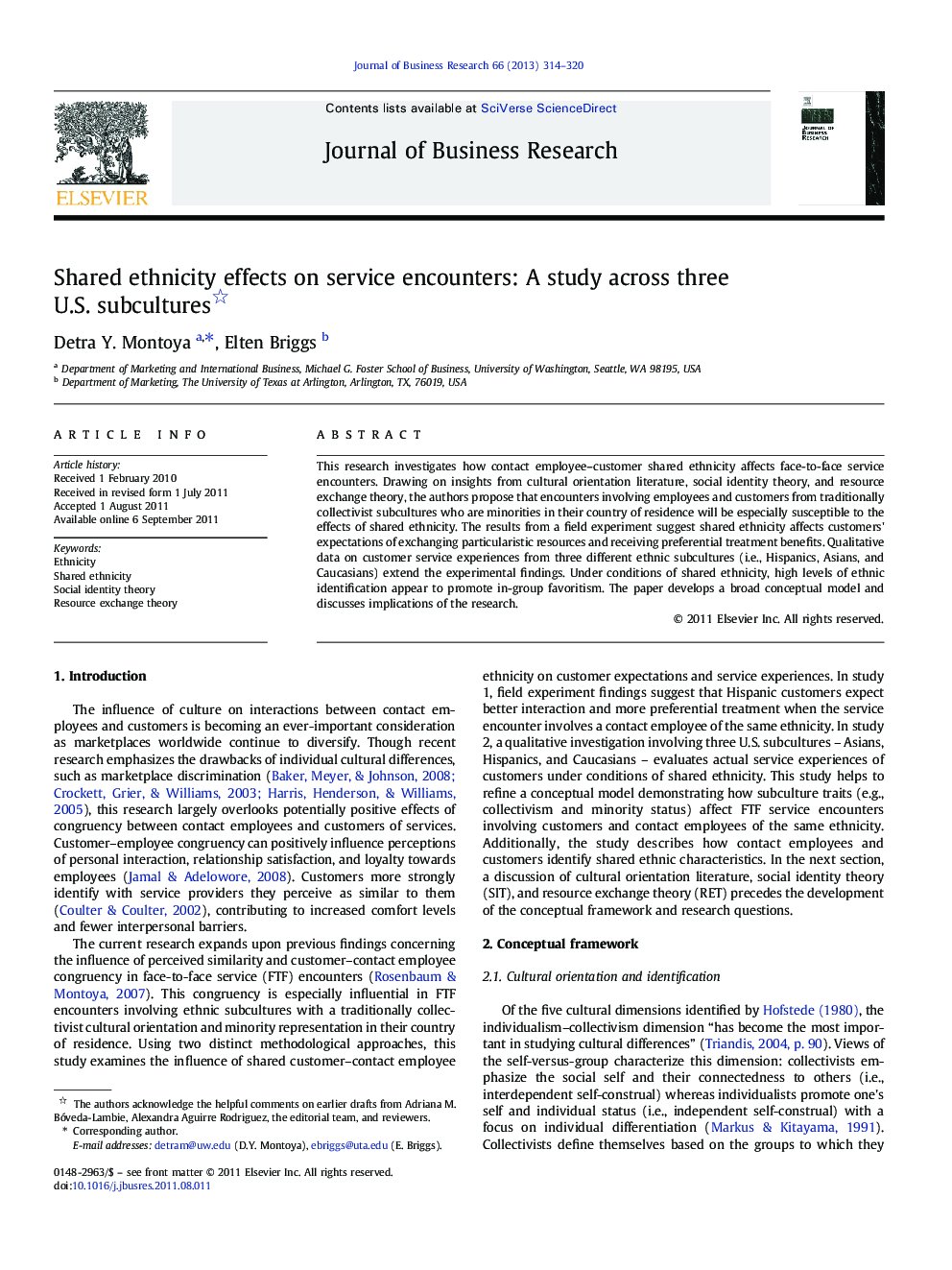| Article ID | Journal | Published Year | Pages | File Type |
|---|---|---|---|---|
| 1017667 | Journal of Business Research | 2013 | 7 Pages |
This research investigates how contact employee–customer shared ethnicity affects face-to-face service encounters. Drawing on insights from cultural orientation literature, social identity theory, and resource exchange theory, the authors propose that encounters involving employees and customers from traditionally collectivist subcultures who are minorities in their country of residence will be especially susceptible to the effects of shared ethnicity. The results from a field experiment suggest shared ethnicity affects customers' expectations of exchanging particularistic resources and receiving preferential treatment benefits. Qualitative data on customer service experiences from three different ethnic subcultures (i.e., Hispanics, Asians, and Caucasians) extend the experimental findings. Under conditions of shared ethnicity, high levels of ethnic identification appear to promote in-group favoritism. The paper develops a broad conceptual model and discusses implications of the research.
► Shared ethnicity enhances service experiences for collectivist/minority customers. ► Shared ethnicity creates higher expectations of exchanging particularistic resources. ► Shared ethnicity leads to expectations of receiving preferential treatment benefits. ► High levels of ethnic identification can promote in-group favoritism.
